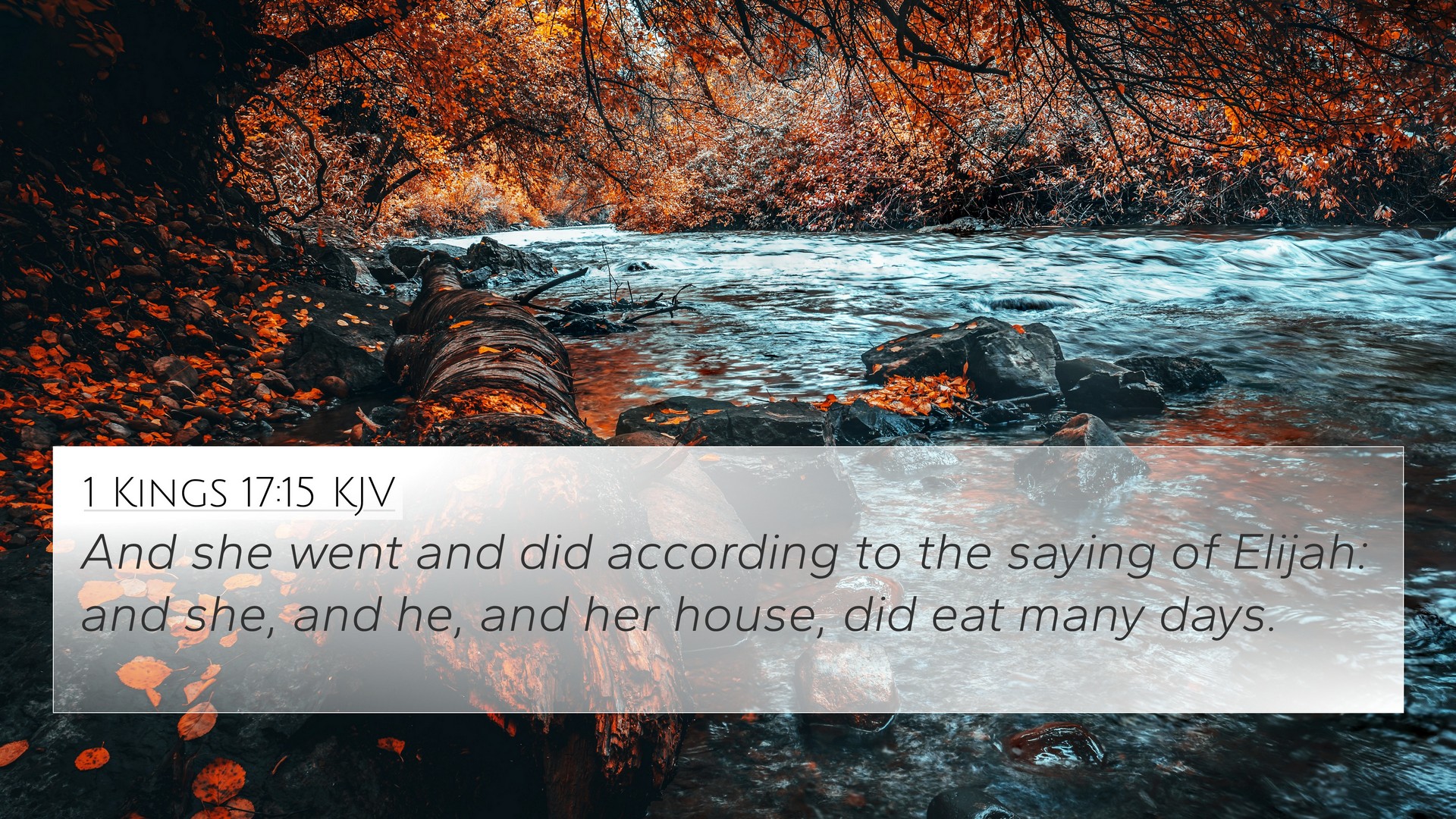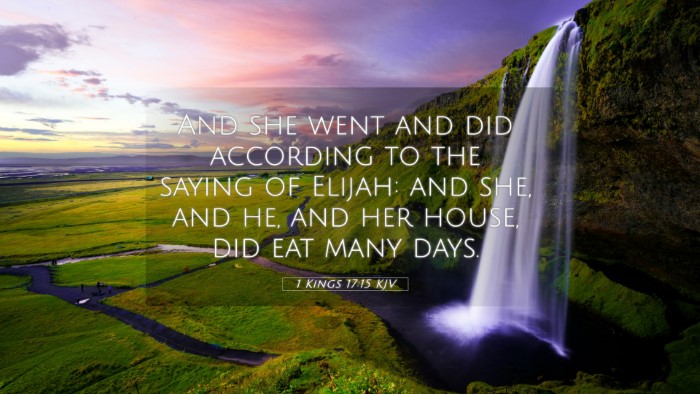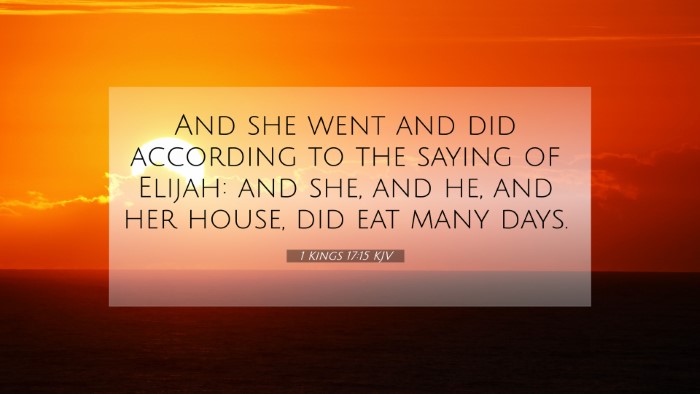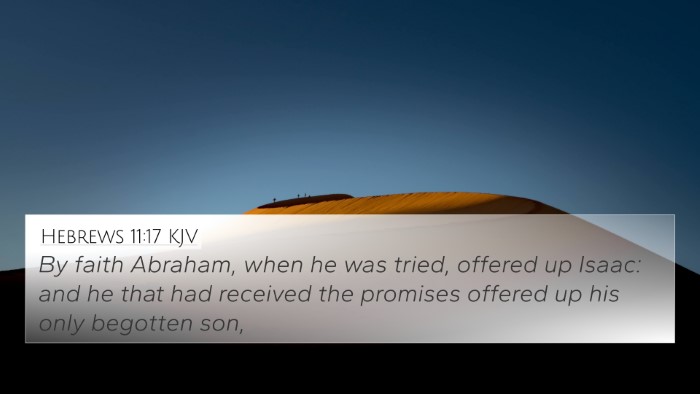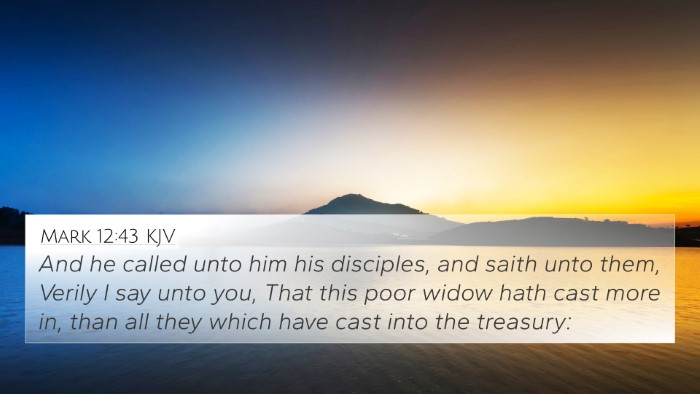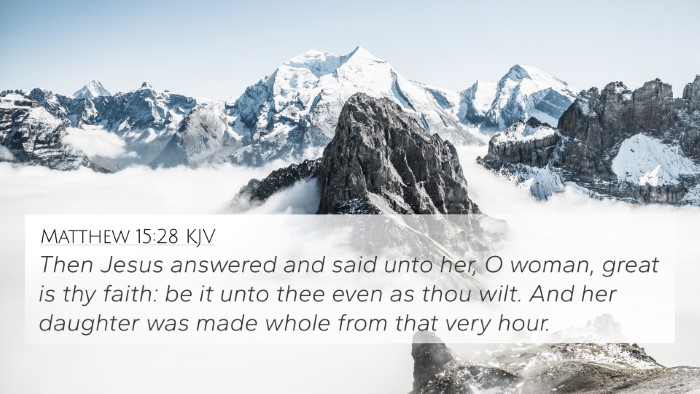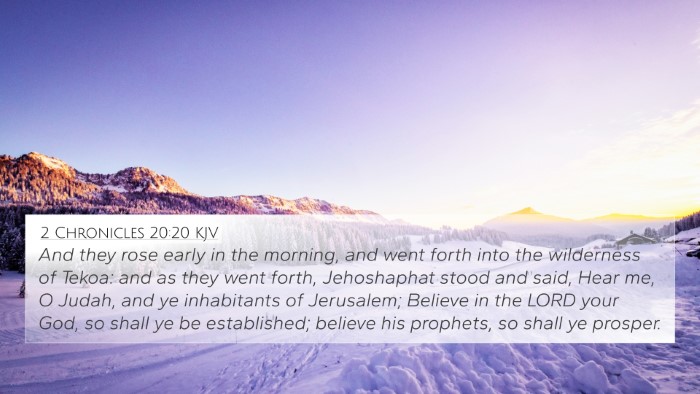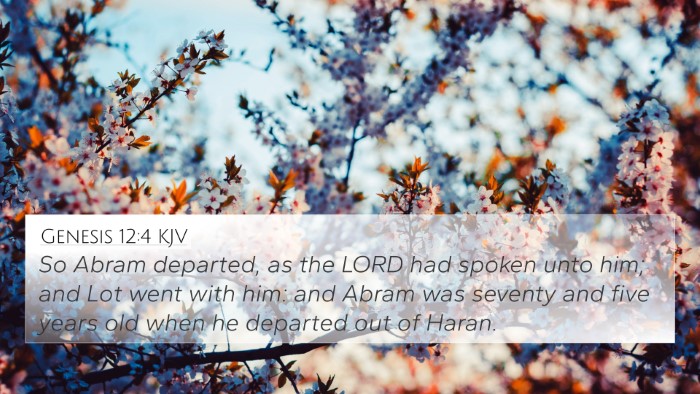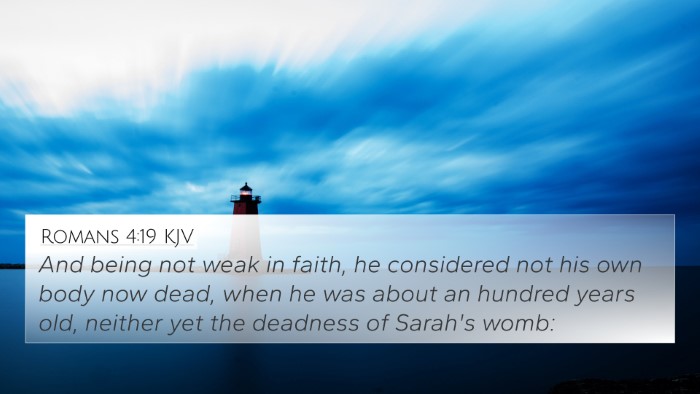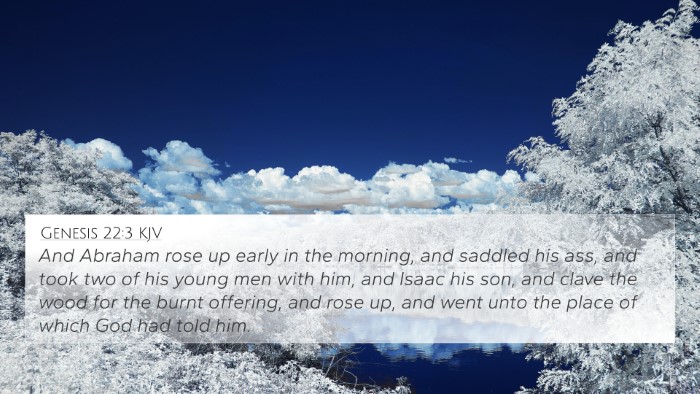Understanding 1 Kings 17:15
1 Kings 17:15 states: "So she went away and did according to the word of Elijah; and she and he and her house did eat many days." This verse marks a pivotal moment in the life of the widow of Zarephath and illustrates themes of faith, provision, and obedience.
Verse Meaning and Insights
In this passage, we see the widow's response to the prophet Elijah's command. Her immediate act of obedience is profoundly significant, showcasing her faith amidst dire circumstances. This verse invites theological reflection on God's providence and the rewards of obedience to His word.
Insights from Commentaries
-
Matthew Henry:
Henry emphasizes the necessity of trusting God's word in situations of extreme need. The widow shows remarkable faith by preparing food for Elijah, putting aside her fears and doubts.
-
Albert Barnes:
Barnes views this act of the widow as a demonstration of her faith that God would indeed fulfill His promise through Elijah. He notes that her obedience not only benefited her but also served as a testament to God's faithfulness.
-
Adam Clarke:
Clarke highlights the cultural context of the widow’s plight. In the Middle Eastern context, hospitality was paramount, and her willingness to share even in her consumption exemplifies her faith and generosity.
Bible Verse Cross-References
The following verses relate closely to the theme expressed in 1 Kings 17:15, thereby enhancing our understanding through cross-references:
- James 2:26: "For as the body without the spirit is dead, so faith without works is dead also." – This underscores the idea that the widow's faith was manifested through her obedience.
- Hebrews 11:1: "Now faith is the substance of things hoped for, the evidence of things not seen." – Reflects the widow's trust prior to seeing the fulfillment of God’s promise.
- 2 Kings 4:2: "And Elisha said unto her, What shall I do for thee? tell me, what hast thou in the house? And she said, Thy handmaid hath not any thing in the house, save a pot of oil." – Another story that examines divine provision amidst lack.
- Matthew 14:13-21: The feeding of the 5,000 demonstrates God's ability to multiply what we offer in faith.
- Philippians 4:19: "But my God shall supply all your need according to his riches in glory by Christ Jesus." – Encourages readers that God always provides for their needs.
- Luke 4:25-26: References the widow of Zarephath, connecting her story directly to Jesus' ministry, illustrating the legacy of her faith.
- Proverbs 3:5-6: "Trust in the LORD with all thine heart; and lean not unto thine own understanding." – Enforces the principle of placing trust in God through challenging times.
Thematic Connections
1 Kings 17:15 fits into a broader narrative about God’s provision and human faithfulness. The thematic connections explored through cross-referencing can enhance our understanding of Biblical teachings about trust during adversity.
It also depicts a classic narrative where the act of giving leads to divine abundance, resonating with various Gospel teachings about generosity and faith.
Practical Application and Reflection
For contemporary readers, reflecting on this verse invites self-examination regarding our responses to divine instruction. Are we, like the widow of Zarephath, willing to step out in faith, even when resources are scarce? This scripture motivates believers to trust God’s provision, reinforcing the notion that when we obey God's voice, He is sure to respond with His blessings.
